2025 Write Out Loud
Winners & Finalists
From Contest to Concert Volume 7
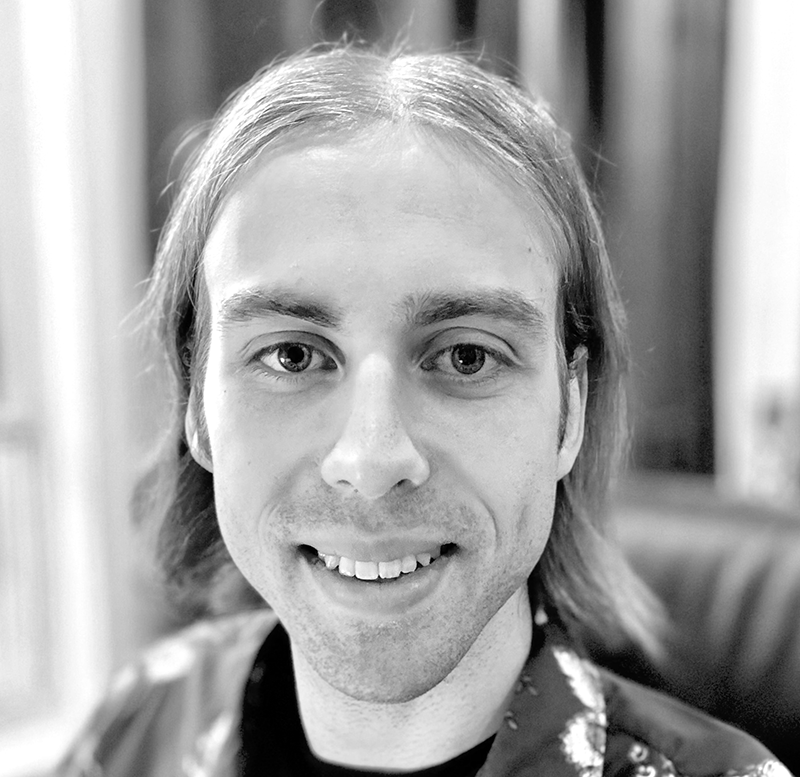
Winner
"Perfect Crush"
- When did you first discover theater/what was your first experience?
Pantomimes and local theater productions -like the Adventures of Dick Whittington, and Cinderella- were my first experience seeing live theater as a kid on school trips and over Christmas holidays. Alongside that, the musical Disney movies (Lion King, Princess and the Frog, Frozen, etc.), movie-musicals, and BBC recordings of plays were my introduction to the idea of combining music and theater!
- When/how did you become a writer? Is there a writer, show, or text that particularly inspired you?
I've always loved good storytelling, particularly fantasy and sci-fi. Tabletop roleplaying games have given me a great grounding in generating and sustaining storylines. I think the writing of Russell T Davies really inspired my desire to hook people in with thrilling plot. And parallel to that I have always loved music - playing and listening, anything that has real heart and soul. Musical theater is an exquisite way to combine both of those avenues.
- How do you describe your style/work?
Whimsical, witty, and intended to delight and spread love!!
- What is most rewarding to you about writing music?
For writing musical theater, the chance to explore and succeed and fail at things as an unlimited array of different characters in an unlimited number of worlds and settings is so exciting. Putting in the brain-work to turn and consider things from all angles is essential. When finally characters and storylines and musical sequences reveal themselves and lock into place - that is the most rewarding part of the process.
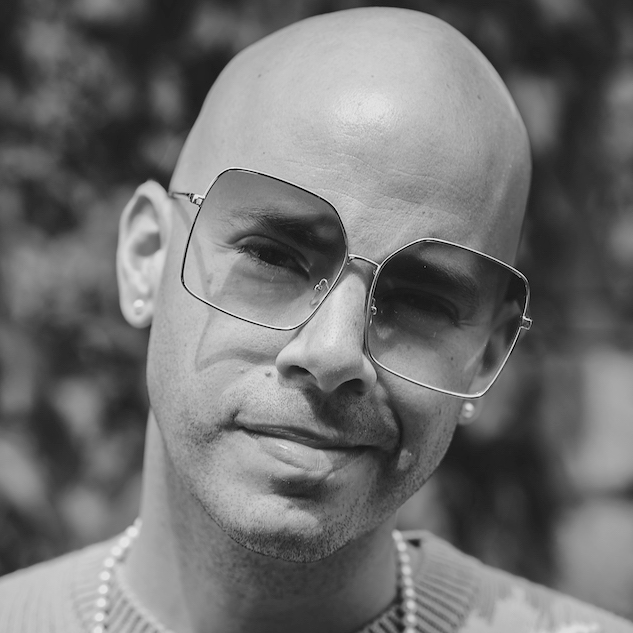
Winner
"The Risk"
- When did you first discover theater/what was your first experience?
I grew up just down the street from a dinner theater called The Lazy Susan. They put on three productions a year, and my family made it our mission to see as many as we could. One time, someone gave me a tour of the “backstage”—which was basically a cable closet and a mirror—but stepping onto that stage felt like magic. I didn’t want to leave.
- When/how did you become a writer? Is there a writer, show, or text that particularly inspired you?
I was a proud member of the Boyz II Men fan club when I was a kid. They showed me what music really is—how it can move people, tell a story, and be full of rhythm and drama. In high school I was in a band called Blue Jay Walking. That was where I really got to practice songwriting and performing. I had to figure out how to get my friends dancing and singing along, and it helped me find my footing as an artist.
- How do you describe your style/work?
I’ve started using the term “funky-folk” whenever people ask what type of music I write. I’m not sure if I made it up or not—but it feels right. Those are two genres I admire and try to blend into my own work. It’s a label that offers a little insight into how I approach creating music: rhythm you can move to, wrapped around honest storytelling.
- What is most rewarding to you about writing music?
Lately I’ve been obsessed with the idea of using my songs as a way to document my life. I’ve released four albums over the course of my (many) years on this planet, and I can go back and listen to tracks I recorded in high school—or even just three years ago—and instantly tap into the emotions I was feeling at the time. It’s like a form of time travel that really fascinates me.
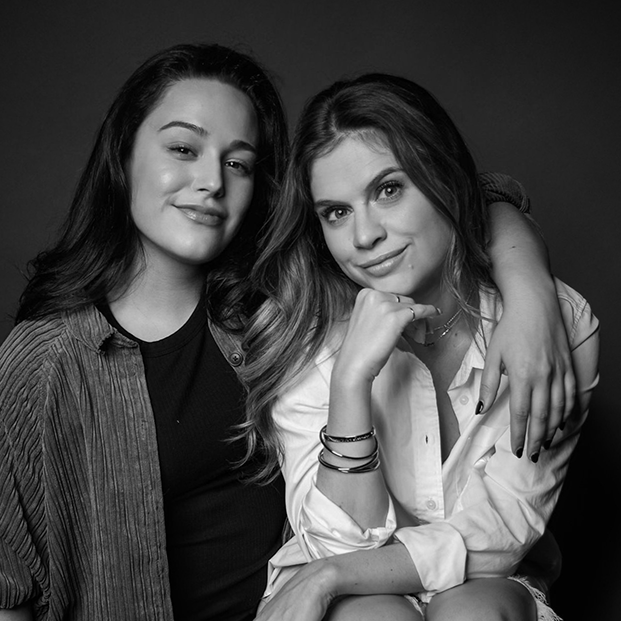
Winner
"I Will Go"
- When did you first discover theater/what was your first experience?
SAMI: When I was four years old, I saw my first Broadway show, Beauty and the Beast. By the time the curtain went down, I told my parents that I would spend the rest of my life in the theatre. The wonder and the magic I experienced that day has only grown stronger, and it's something I've carried with me through my adult years. Because I grew up in New York City (on 48th and 3rd!), I was incredibly fortunate to have access to the theatre just across town. By the time I was six, I attended my first musical theatre summer camp, and the rest was pretty much history. I've been making a life in the theatre ever since.
AMANDA: The first time I remember being struck by theater was in kindergarten, when the 5th graders put on a prolific performance of Bye Bye Birdie in the cafetorium. I sincerely hope the girl that sang the lines "Bye Bye Birdie" with the most pristine forward placement is working today. I didn't do my first show until I was 11. I was a grande homme in Once On This Island. I was in the ensemble. I loved it. Was an emsemble chica from then on.- When/how did you become a writer? Is there a writer, show, or text that particularly inspired you?
SAMI: Throughout my childhood, I thought I wanted to be a musical theatre performer. In reality, I didn't know it was possible to be a lyricist or bookwriter for the theatre. I started writing pop songs on the guitar in my pre-teen years, but because I didn't play piano, writing theatre didn't seem like a possible path for me. I went to Brown University for college and majored in Theatre Arts, which allowed me to study theatre in all its forms - not just performance. In my senior year, I took my first real musical theatre writing course, which was a huge lightbulb moment for me. After graduating, I did some performing, but I mainly focused on writing instead. I started writing a web series with some friends called The Under 5ers, for which I wrote a few songs. My work on that web series got me nominated for my first songwriting award - an Indie Series Award for Best Original Song. I then got the opportunity to write both music and lyrics for a pop/rock/country musical called Rock and a Hard Place. I applied to the BMI Lehman Engel Musical Theatre Workshop, the premiere training ground for musical theatre songwriters in New York, with those songs, and I was admitted as a lyricist. That was really what changed my trajectory and cemented my belief that writing for the theatre was what I needed to do. Amanda and I met there and started working together when we were paired for the final assignment of the first year, which became our first full length show and our Off-Broadway debut as a team! Since then, we've written six full length shows and dozens of standalone songs. I am now and Advanced Lyricist and Bookwriter in the BMI Workshop, and I continue to love learning from my talented colleagues and the mentors in the program.
As far as my inspirations, many of my favorite shows from childhood are still my favorites now. I've definitely stayed true to my four year old self, and I'm still obsessed with all things Disney (Alan Menken is my favorite composer of all time, and Howard Ashman is my hero). Little Shop of Horrors, naturally, followed suit. Ashman and Menken's work is as emotionally-driven as it is smart. Their characters are funny, deep, complex, and so relatively human despite living in fairy-tale universes. Menken's hummable melodies are also something Amanda and I strive to emulate in our own songwriting.
Some of my other favorite shows both growing up and now are Into the Woods, Les Miserables, Hamilton, and Spring Awakening, the latter of which opened during my junior year of high school and is still my #1 favorite of all time. I am also deeply inspired by other female lyricists who have paved the way, including Lynn Ahrens, Amanda Green, Nell Benjamin, and Kristen Anderson-Lopez, many of whom were also part of the BMI Workshop! Their words are well-crafted, evocative, and whitty - all while staying truthful to character and constantly moving the plot forward. To me, that is the goal of any good musical theatre song.
AMANDA: Writing was born out of my deep frustrations, always. It was an outlet to express my emotions and feelings about the world. I always noodled in my piano lessons, and it all came very naturally. I really liked to write pop songs, and write instrumental music, and I thought about going to school for composition, but my love for singing and creating a story with others temporarily trumped the desire to score films, so I auditioned for Musical Theatre programs and got into the Boston Conservatory. As a mixed raced chubby girl 15 years ago, teachers didn't really know what to do with me. They encouraged me to keep forging my path, and I soon came to the conclusion that I would write my own work. I saw what Lin Manuel did, and as a big Stephen Schwartz fan, I figured I could do it to. The ideas were always in my head.- How do you describe your style/work?
SAMI: As a rare female songwriting duo, Amanda and I tend to focus on writing about strong women (or badass women in history, more colloquially). The six projects we’ve developed together - Single Rider, The Radium Girls, Coming Attraction, Bandit Queen, The Break, and Pandora in Blue Jeans - all live up to this objective. We also want to write shows audiences see themselves in, regardless of their gender identity, ethnicity, shape, size, or sexual orientation. Our musical style as a team tends to be contemporary and pop-focused, though we have also written in a variety of genres to suit the piece at hand. We always take our cues from the time period and setting, as well as the internal lives of the characters we’re writing for. The Radium Girls is set in the 1920s, so we play with era-appropriate musical styles including Jazz and Swing, while much of Bandit Queen's music is geared towards Bluegrass, Folk, Country, and Ragtime, encapsulating the sound of the West in the 1890s. Regardless of the genre, memorable melodic lines are always at the forefront of our songs together - we want audience members leaving the theatre humming!
AMANDA: Tuneful, contemporary, but hopefully harkening to the old days of writing tunes that people want to sing forever. I write for strong women and all of the stories I'm drawn to feature them!- What is most rewarding to you about writing music?
SAMI: Writing music and making theatre, to me, is all about collaboration. I absolutely love watching a song or a show come to life when talented people work together. The thrill of having that initial idea spark in the room with your collaborator - I think there's really some magic in that. Crafting that idea, putting it on paper as new ideas miraculously appear before your eyes, then listening to the melody or the words over and over until you've perfected the song moment - that all requires intense collaboration between the composer and lyricist (and most times, the bookwriter as well!). It's all about listening to one another and helping each other create the best possible version of the thing you're trying to make. The trust I have for Amanda to hold space for my ideas and help them grow is what makes us such a great team.
But in theatre, collaboration extends beyond just the songwriters. Adding in an orchestrator to help bring your song to life in a way you never thought possible, and then hearing talented musicians play it for the first time while an incredible performer sings your words: there's no better feeling. It takes so many people working together and trusting in one another to make a song, and there's nothing I love more than looking around the room and soaking in that collective sense of accomplishment and joy. The most special thing about theatre, in my opinion, is that we all share in it together, from the creators to the performers to the audience. There's really nothing like it.
AMANDA: That I get to share a part of myself with others. That people connect to the ideas and melodies that I write. That I get to spread happiness and good vibes honestly.
-
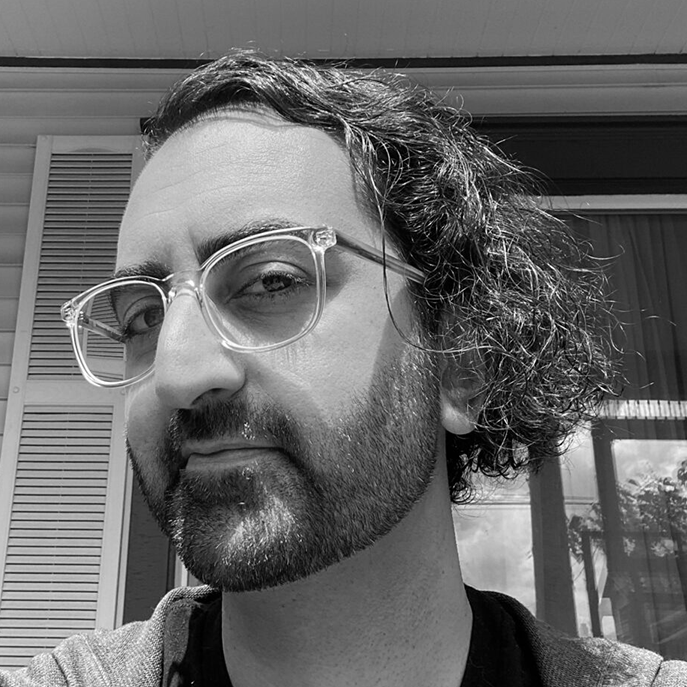
Ash
- Title
- "I've Heard the Stories"
- Finalist
- When did you first discover theater/what was your first experience?
I think I was about 6 years old watching the Little Shop of Horrors movie when I realized that all my favorite movies were musicals. I did theatre for fun in middle school, but it wasn’t till I was in a high school production of The Music Man that I appreciated how brilliantly crafted musical theatre could be.
- When/how did you become a writer? Is there a writer, show, or text that particularly inspired you?
I took piano lessons as a kid… and hated it. I was always changing the rhythms, melodies, and chords to my teacher’s dismay. I like to credit that to the composer in me (and not to any unruliness, surely). I eventually found my way back to the piano and started writing songs in high school. And then I arranged choral music in college. And then I wrote songs for Shakespeare shows for community theatre. And then I wrote my first full musical. And then, and then, and then… Becoming a writer was a slow and meandering route, but one that feels like it was always inevitable.
- How do you describe your style/work?
As a queer and trans artist of color, I’m passionate about creating theatre that cultivates empathy, challenges audiences, and tells new stories (or old stories in new ways). I revere music that is accessible to the ear, affecting to the soul, and engaging to the mind. And holding contrary truths is a cornerstone of my artistic philosophy: I believe that pain can be beautiful, love can have question marks, and nothing is black and white. So, compositionally, I tend to strive for simplicity, beauty, and surprise.
- What is most rewarding to you about writing music?
I've always loved telling stories through music to make an audience have a new thought, feeling, or experience, cause when a song breaks you and changes you just a little bit… it makes you want to never stop writing.
-
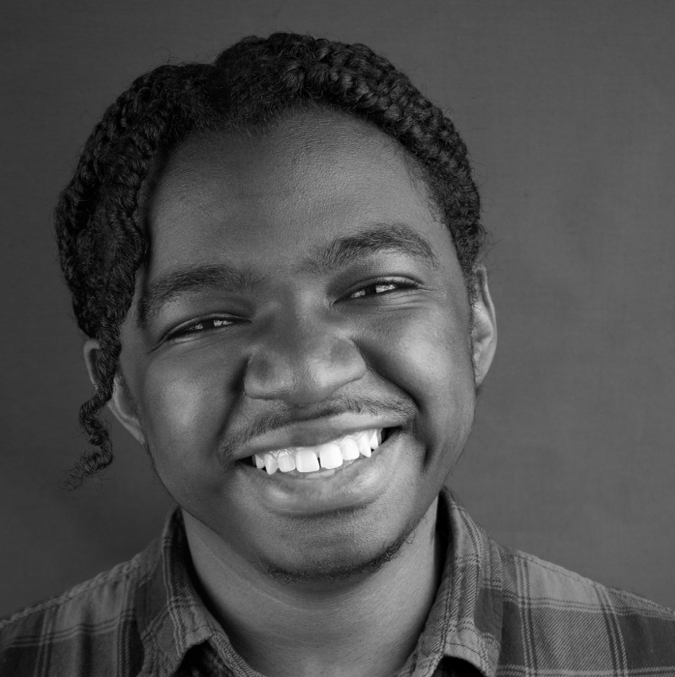
Myles Carter
- Title
- "Hopeless x Worth It"
- Finalist
- When did you first discover theater/what was your first experience?
My older sister was in a production of Seussical when I was in elementary school. Watching that show is one of the only things I remember about that time period. The Cat in the Hat did crowd work (fostering my fear of audience participation), the Sour Kangaroo blew everyone away, the Wickershams went bananas, and finally that lonely elephant waded through it all, just trying to find a friend, which resonated with young boy me like not much else could. I was envious that my sister got to be a part of that gorgeous, silly, musical world and wanted nothing more than to be a part of it too.
- When/how did you become a writer? Is there a writer, show, or text that particularly inspired you?
I had been writing skits and composing small pieces throughout high school but I didn't start taking writing seriously until one of my acting professors read a journal entry of mine, said he liked my voice and thought I should start writing my own stuff... then the pandemic happened so I had an infinite amount of time! I took inspiration from all of my favorite things at the time: the Hamilton proshot, "Legends Never Die" by JuiceWRLD, old Bo Burnham clips, professional wrestling, etc. The sound, structure, and vibes of all of these things shaped the art I made at the time, and things just blossomed from there!
- How do you describe your style/work?
When it comes to music, selfishly enough I just try to write music that I like listening to. The Rnb, Hip-Hop, and Soul influences that I grew up on mixed with the intimate and meticulous storytelling ingredients that made us all fall in love with theatre. Catchy melodies and beats you can vibe with performed by characters you can root for (or root against). I love writing songs that sound just as good out of context as they do in context!
- What is most rewarding to you about writing music?
The feeling of a harmony clicking into place at just the right moment. The release you feel when you realize what a character had ACTUALLY been singing about the whole time. The rush you feel when a song is ramping up to a climax. That bass turn that makes your face scrunch up so hard you become a different person. The beat that makes you bop your head before you even realize you're moving. The satisfaction you get when the bridge transitions back into the chorus. Getting to make people feel all the things you felt while writing. Best feeling in the world.
-
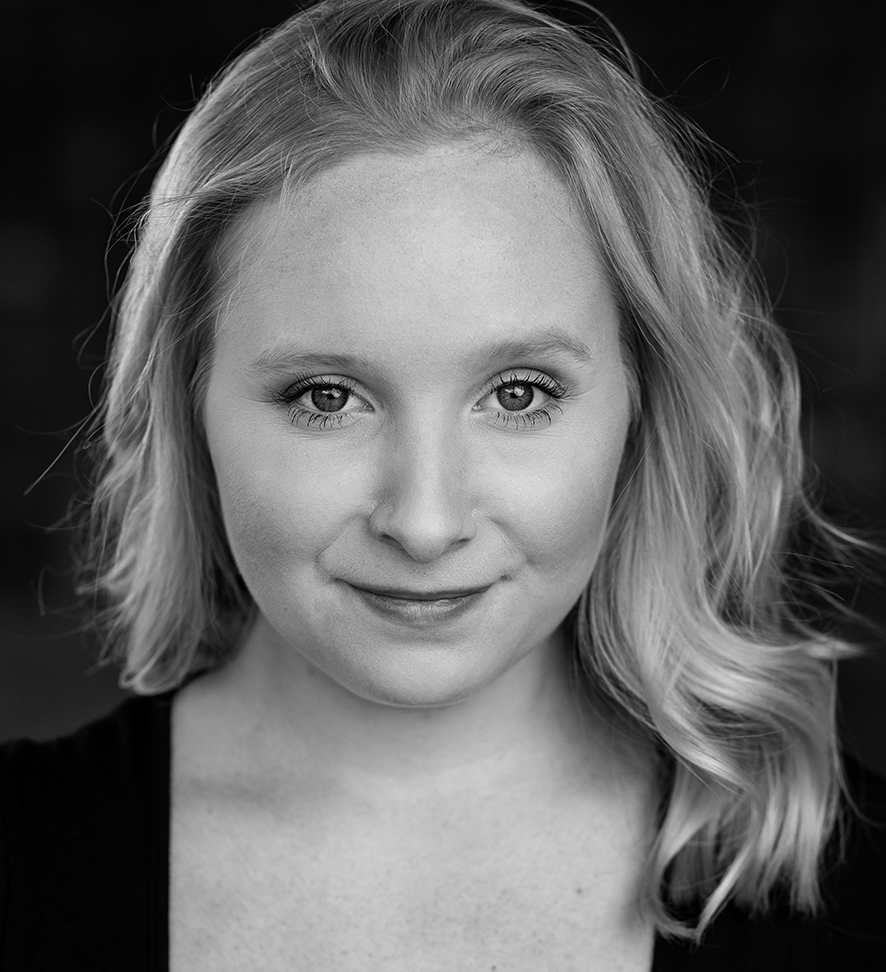
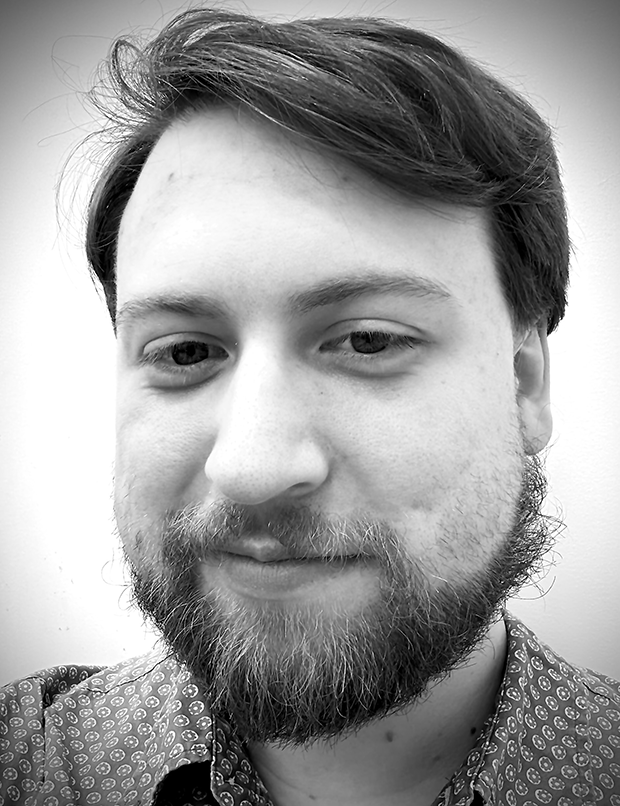
Caroline Game & Michael Oosterhout
- Title
- "The Right Direction"
- Finalist
- When did you first discover theater/what was your first experience?
CAROLINE: My first experience in theatre was when I was cast as a baby chick in my first grade production of The Little Red Hen. I watched my big sisters perform in the same show when they were in first grade, and was thrilled to be following in their footsteps. (Doubly thrilled because all the little chicks got to eat bread on stage). I’ve been bit by the theatre bug ever since!
MICHAEL: My first memory of a theatre experience is listening to the RENT cast album with my family in the car and singing along joyfully. Beyond that, I have fond memories of acting and singing onstage in middle school theatre, before discovering in high school the magic of creating and nourishing theatre to life from behind the scenes.- When/how did you become a writer? Is there a writer, show, or text that particularly inspired you?
CAROLINE: I first started writing songs for my own enjoyment when I was in middle school, and decided to pursue writing more seriously within the last few years. Similarly to my collaborator, I’m inspired by the songwriting of many 70s artists including Carole King and Joni Mitchell. In musical theatre, I’m particularly drawn to the work of Stephen Sondheim, Dave Malloy, Stephen Schwartz, and Anaïs Mitchell.
MICHAEL: I began becoming a songwriter when I was 12 years old, when I first tried putting words and music together on my own. I was influenced heavily at the time by my family's favorite performers, including the singer-songwriters of the early 70s, like Carole King, James Taylor, Jim Croce, Joni Mitchell, Elton John, Billy Joel, and more. Since then, musical theatre writers like Stephen Sondheim, Jonathan Larson, Jason Robert Brown, and more have become my guiding stars.- How do you describe your style/work?
CAROLINE: We describe the style of our show as being river-folk contemporary musical theatre. In our coming-of-age, retelling of Greek mythology, we use specific instrumentation, melodic structure, and clear but poetic lyrics to write songs that aim to expand a person’s empathy and effectively reflect the setting in which the story takes place.
MICHAEL: We describe the style of our show as being river-folk contemporary musical theatre. In our coming-of-age, retelling of Greek mythology, we use specific instrumentation, melodic structure, and clear but poetic lyrics to write songs that aim to expand a person's empathy and effectively reflect the setting in which the story takes place.- What is most rewarding to you about writing music?
CAROLINE: For us, the most rewarding part of writing music is getting to share it with other people. It brings us a great deal of joy to bring what we’ve created to others and watch a song or a story exist for someone else too.
MICHAEL: For us, the most rewarding part of writing music is getting to share it with other people. It brings us a great deal of jy to bring what we've created to others and watch a song or a story exist for someone else too.
-
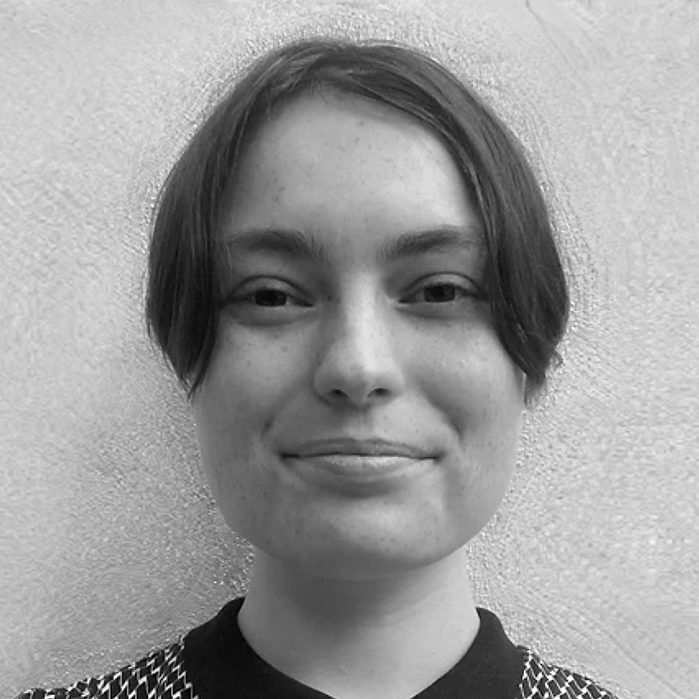
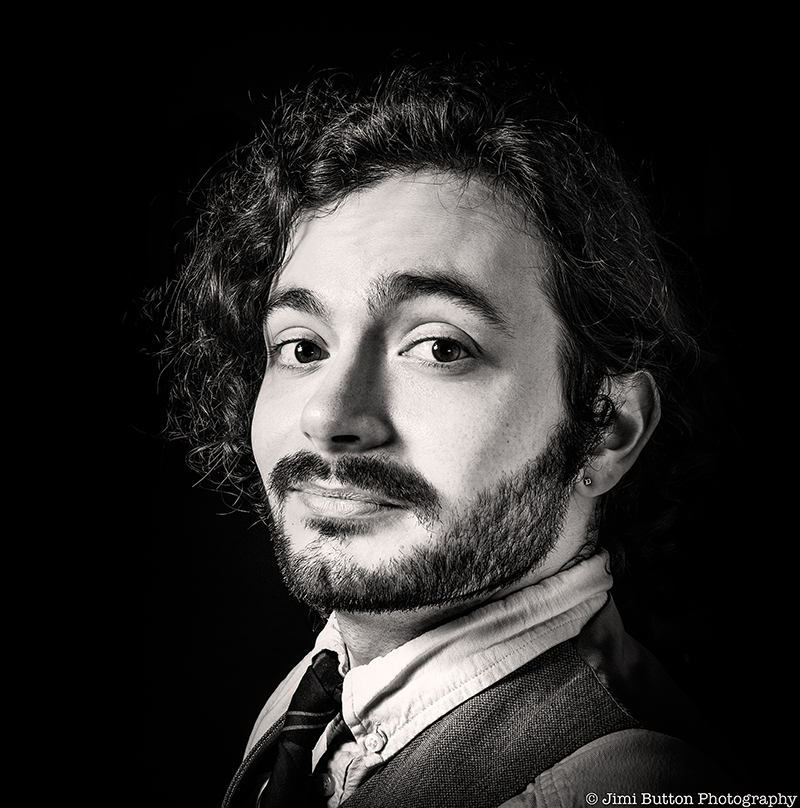
Abbie Goldberg & Mason McDowell
- Title
- "Round and Round"
- Finalist
- When did you first discover theater/what was your first experience?
ABBIE: For better or for worse I was hooked from the moment I saw Cats at Merrill Auditorium in Portland, Maine at age 5. Sorry but it's singing and dancing cats-- what's not to love!?
MASON: My parents are both musical theatre writers, so you could say it was at birth - But my actual first memory was sitting in the audience at 5 years old, watching my parents' musical "The Wind in The WIllows", and hearing the fully realized versions of all the songs they had been working on for years... It took me while to realize it, but the emotional rush of that moment set me on an inevitable trajectory towards the stage.- When/how did you become a writer? Is there a writer, show, or text that particularly inspired you?
ABBIE: My first plays were written for my sisters, cousins and I to perform together. My references were weirdly old school-- who's on first, Gilda Radnor as Emily Litella on SNL, Carol Burnett. Over the course of a week we would make elaborate sets, costumes, and even programs. We performed these masterpieces in a shed in my yard or, as we named it, The Golden Shedette Theater. We had so much fun and the critics loved us.
MASON: I was home-schooled along with my older brother (who is hearing impaired), all the way through to college. We often had to entertain ourselves, and would create fantastical worlds based off of our combined interests - if we were ever bored, it was only for a moment, because we could always slip into a world of our imagining if the real one wasn't doing the trick.- How do you describe your style/work?
ABBIE: I would describe my work as socially engaged spectacle.
MASON: I'm a baffling blend of the old and the new - I admire and obsess over the structure and melodic clarity of Rodgers and Hammerstein, but my sound is really the bastard child of Billy Joel, Stevie Wonder, Joni Mitchell, and Adam Guettel all at the same time. It's a very confusing family, no one knows who the father is.- What is most rewarding to you about writing music?
ABBIE: My background is in community organizing and I see my theater making as an extension of that work. I want to bring people together to have a transformative experience in which they feel in their bodies that another world is possible. I want to build community and when I can do that through my writing it's so so life-affirming.
MASON: Sharing a piece of art is sharing a piece of your soul - and the conversations that I have with people that have heard my music often forge real emotional connections - where did you laugh, where did you cry? Where did it make you think of something from your past? Where did you notice I played the wrong chord? (the correct answer is you DIDN'T notice) There's something about the inexplicable understanding that we all have of this language, that makes me feel like I'm doing something to bring us all together in some small way.
-
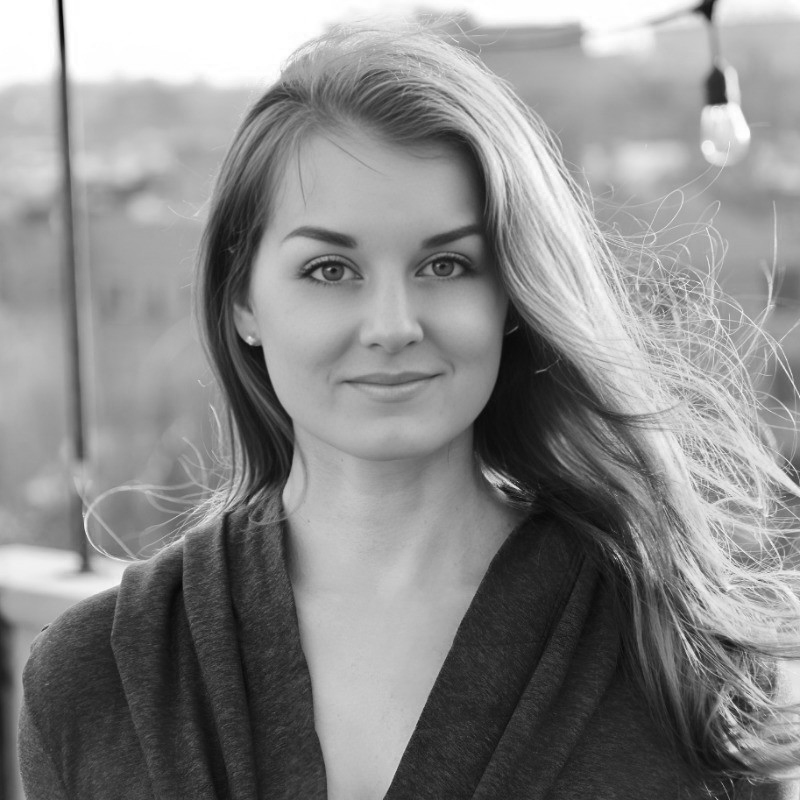
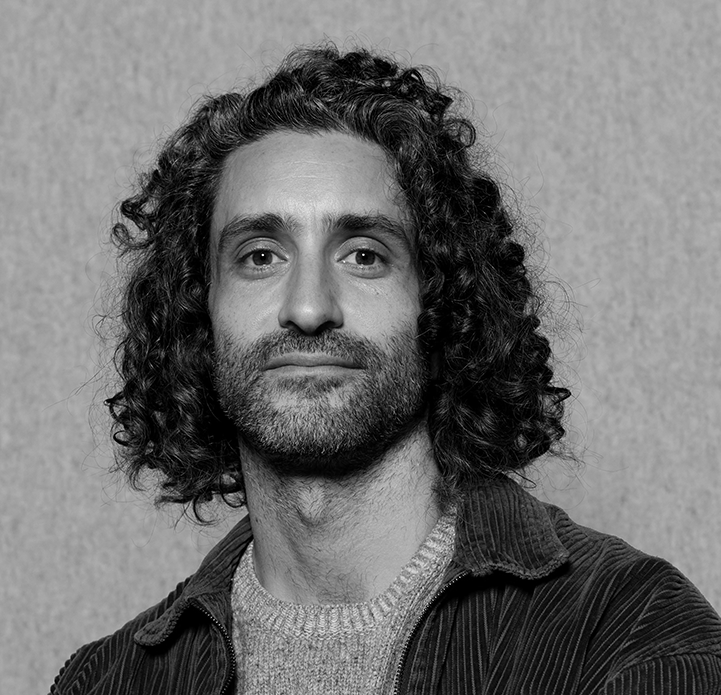
Julia Gytri & Avi Amon
- Title
- "Where I Belong"
- Finalist
- When did you first discover theater/what was your first experience?
JULIA: I first discovered musical theatre through community theatre productions as a little, little kid when my family lived in Alamogordo, NM. Standard stuff, like Cats, 1776, The Secret Garden, Jesus Christ Superstar... those casts had a BLAST step-ball-changing and singing those songs for our town. Watching anyone have that much fun is contagious.
AVI: Growing up in Rochester, NY, my high school line-up of musicals was: West Side Story, Carousel, Anything Goes, and Damn Yankees. Very proud to have hit the apex of my acting career at 18.- When/how did you become a writer? Is there a writer, show, or text that particularly inspired you?
JULIA: I was a big-time band geek in high school and really only did theatre on the side because I thought the only job you could have was acting. I was serious about music and composition, but then I discovered playwriting in college and realized the two could be combined, so I went on to earn an MFA in musical theatre writing. Along the way, studying scores like West Side Story, Sunday in the Park, Floyd Collins, and Passing Strange among others, made me feel like the form could be anything, and it was thrilling.
AVI: I’ve studied piano since I was five and have been doodling melodies ever since. But I truly began writing when I was working in the admissions office at the University of Delaware, where I created Delaware: The Musical—essentially an absurd, heartfelt ad campaign for the school. That project became the core of my grad school application to NYU, where I formally began writing for theater. I moved to New York soon after, and the rest is history. A few writers and artists who continue to inspire me include Adam Guettel, Gabriel Kahane, Laurie Anderson, Ryuichi Sakamoto, Wendy Carlos, David Yazbek, Caroline Shaw, and Dave Malloy.- How do you describe your style/work?
JULIA: Feminist, challenging, tension-packed, and often (but not always) with a Southwestern vibe
AVI: My work blurs the lines between music theater, sound installation, pop, and musique concrète. While I often draw from my own musical lineages—from my family’s history in Turkey to growing up in the U.S. in the ’90s and early 2000s—I’m most excited by the act of dissolving into the unique musical language of each project. I love being a chameleon in that way, collaboratively shaping sound worlds that are deeply embedded in the storytelling.- What is most rewarding to you about writing music?
JULIA: Being part of the group of people having fun! Making the fun!
AVI: For me, the most rewarding part of writing music is its power to communicate beyond language. I work across theater, film, dance, and other multidisciplinary forms, and in each, music becomes an emotional undercurrent—shaping how we understand story, place, and feeling. Sound can carry memory, suggest meaning, and deepen connection through abstraction. Collaboratively shaping these aural experiences allows me to participate in meaning-making that is at once intimate and collective. That resonance—when something invisible alters how we perceive the world or each other—is what keeps me coming back.
-
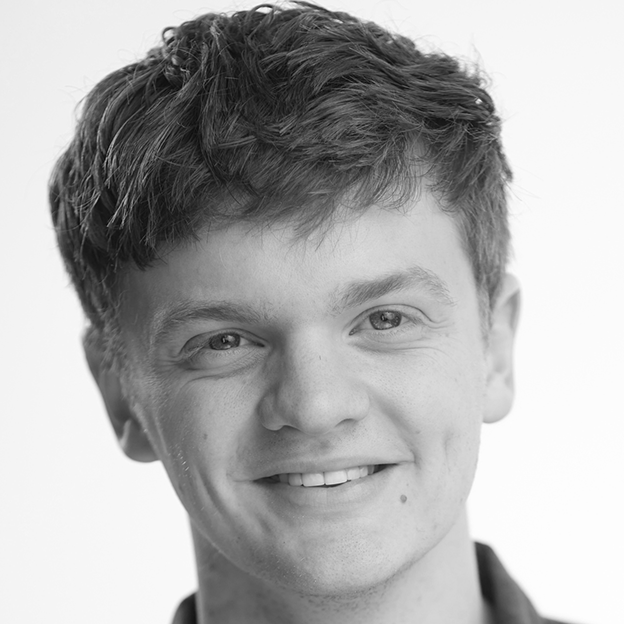
Ryan Jacobs
- Title
- "Duck Suit"
- Finalist
- When did you first discover theater/what was your first experience?
I grew up in Kansas City. In fifth grade, I was cast as Winthrop in The Music Man at Blue Valley High School. I got the theater bug as soon as I walked into the rehearsal room. I thought it was so cool how much everyone cared and I particularly fell in love with Meredith Wilson's score. I really attribute that show to being the starting point of everything I do as an artist today.
- When/how did you become a writer? Is there a writer, show, or text that particularly inspired you?
My mom is a piano teacher, so I've played piano since I was four years old. And as long as I've played piano, I've written music. I don't really remember ever sitting down at the piano and consciously trying to "write music", though. To risk sounding cheesy, it always just kind of came out of me whenever I sat down at the piano or sang to myself. It wasn't until around middle school that I consciously thought about composing. I learned about Jason Robert Brown around that time. In sixth grade, I watched The Last Five Years movie and became completely obsessed. I spent the entire next year learning "Moving Too Fast" (down a whole step, because I didn't know how far my voice was going to drop) to play at my middle school talent show. The time I spent with that song taught me so much about piano writing and confirmed that I wanted to write musicals for the rest of my life.
- How do you describe your style/work?
My musical vocabulary is typically rooted in jazz, and I love all things funky. I've been informed by artists like Quincy Jones, Stevie Wonder, Kirk Franklin, and especially Pat Metheney and Lyle Mays. My music is also equally rooted in orchestral music. I fell in love with this kind of music when I started playing french horn in the school's concert band. That being said, I have an equal love for composers like Copland, Caroline Shaw, Gershwin, Grainger, and Ravel.
- What is most rewarding to you about writing music?
I’ve found that my answer to this question changes a lot. Often, the best part is being able to make music with other people. Other times, it's the feeling of being able to express things that other kinds of communication can't capture. Or it's when a bass player comes up with a line so filthy that you throw up. It really depends.
-
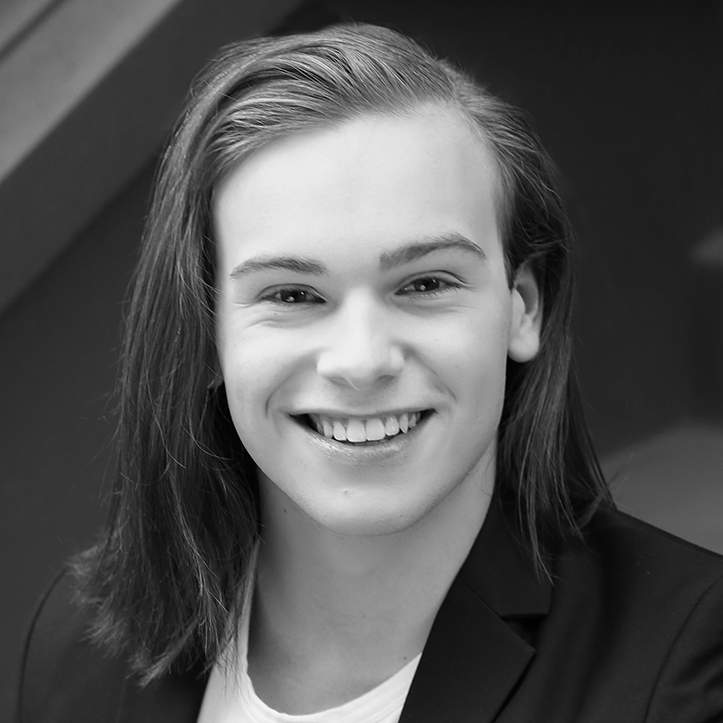
Jack Richman
- Title
- "Talk to Her"
- Finalist
- When did you first discover theater/what was your first experience?
My first experience with theater was when my grandma took me to see The Little Mermaid on Broadway when I was 5. It was a life-altering experience, and the Disney and theater magic made me fall in love with the stage.
- When/how did you become a writer? Is there a writer, show, or text that particularly inspired you?
I started writing theater and pop songs when I was very young but more seriously in middle school, and have grown through my training, particularly in college. I have been inspired by many writers particularly Alan Menken, Stephen Flaherty, Stephen Sondheim, Adam Guettel, and Michael John LaChiusa.
- How do you describe your style/work?
My style takes from a multitude of influences but I tend to really enjoy the influence of the golden age of musical theater. Sprinkled into my work as a composer is swing, contemporary sounds like Jason Robert Brown, afro-cuban rhythms and figures, and much more. I tend to be pretty specific and intentional with my writing as a composer and lyricist. I love form and how it can support the listening of a song at first go. I love perfect rhymes and experimenting with all the ways to shape a song, give it motion, and highlight particular moment.
- What is most rewarding to you about writing music?
The most rewarding part of writing music is hearing it come to life for the first time. When a song leaves the page and comes into actuality it's super exciting and inspires me to write more, especially when the performers are of a certain caliber.
-
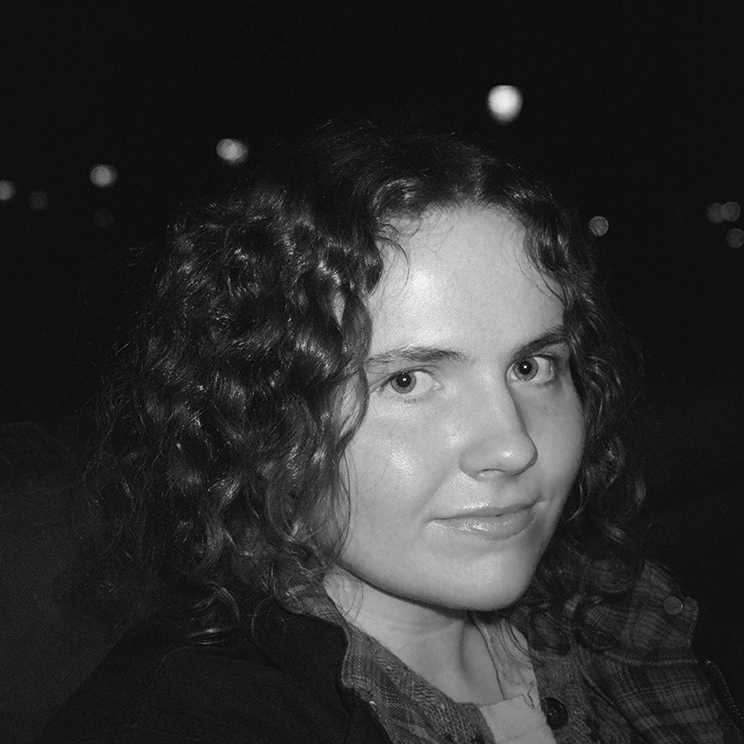
Annabelle Dinda
- Title
- "In Reality"
- Finalist
- When did you first discover theater/what was your first experience?
I was the eager offspring of a musical obsessed mother, so I have no memory of the first time I encountered theater. I'm sure it was a 2001 Broadway for Babies CD that played nonstop in our Honda minivan. I do, however, remember my first big role as the Genie in Aladdin Jr., and the discovery of how electric it felt to get to be silly on stage. Silliness in theater is very important to me, even when writing a musical set in an eating disorder recovery center.
- When/how did you become a writer? Is there a writer, show, or text that particularly inspired you?
While I considered myself a songwriter long before I could actually write a song, I didn't muster up the courage to imagine myself as a writer until well into college. I had this idea I would study music in school, but inextricably found myself drawn to poetry and creative writing, and decided that I would be a better songwriter if I went back to the basics and learned how to write a story. Tracy K. Smith, who was the poet laureate in 2017, has been my favorite poet and writer since I first read her work when I was 19 years old. Her 2011 collection of poetry 'Life on Mars,' single-handedly changed the way I think about composition-- and life, if I'm being honest.
- How do you describe your style/work?
My music, no matter how hard I try to stray from myself, always tends to fall somewhere in the folk/rock range, with a hint of pop when I feel like dancing. This piece is no different, and what I like about alternative, more acoustic music is its ability to sonically get right to the core of a feeling, without being too obvious. I love when, in a musical theater space, there is room for music to be casual and soft, as opposed to a perfectly crafted show tune. (Don't get me wrong-- I love show tunes, they just refuse to be recreated by my brain.)
- What is most rewarding to you about writing music?
Writing music is nothing short of cathartic for me. I think about it a lot, in fact-- how lucky I am to live this life in which I have a built-in setting, or, rather, an inclination towards something that some people spend years searching for, something that grants me absolute freedom and contentment. When people listen and respond to music, it is an undeniably good feeling. But for me, it doesn't even come close to the experience of writing alone, of working through a problem and coming out the other end with an indulgent product. The moment I first finished a song, alone in my room when I was 10 years old, was the moment I knew that this practice would become the backbone of my life.
-
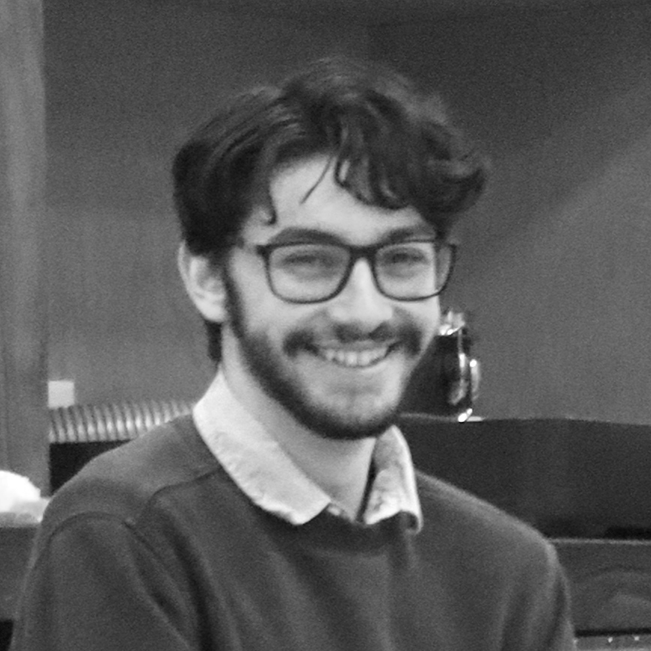
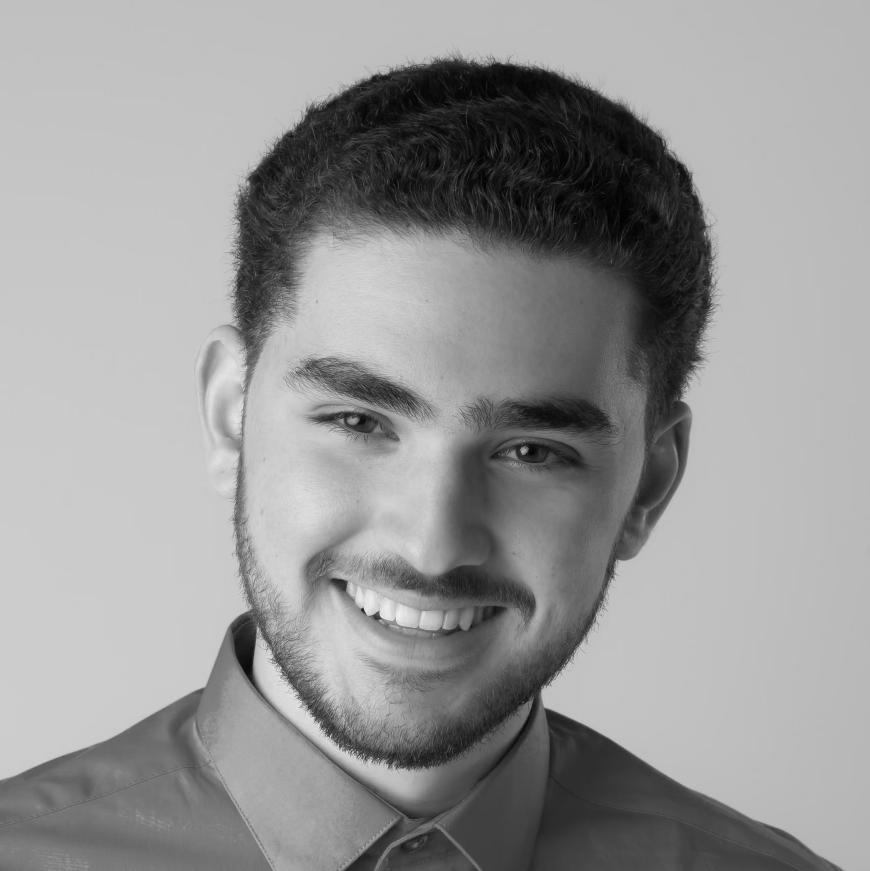
Asher Shectman & Benji Hafetz-Price
- Title
- "Envy"
- Finalist
- When did you first discover theater/what was your first experience?
ASHER: My earliest theatrical experiences include playing King Achashverosh in the preschool Purim play (A.K.A. the peak of my theatrical career) and dissociating during Mary Poppins on Broadway at far too young an age to appreciate it. My first proper encounter with the "magic" of live theater was probably when I fell down the Sondheim rabbit hole in high school.
BENJI: My parents took me to see the national tour of Wicked when I was 3 years old (risky, I know) and ended up learning the soundtrack by the end of that week.- When/how did you become a writer? Is there a writer, show, or text that particularly inspired you?
ASHER: I had always loved playing piano and composing, but I started writing musical theater when I learned more about Sondheim, particularly Merrily We Roll Along. The chronology of the show fascinated me, and inspired me to take up adapting a favorite movie of mine which also narratively manipulates time. I've since scrapped the idea, but remain wholly enamored with the art form.
BENJI: It wasn't until high school that I decided I wanted to become a storyteller. I was constantly surrounded by theater in school but also became actively engaged in music and film. In particular, Noah Baumbach's Marriage Story and its ability so seamlessly weave Sondheim's music into its story moved me to the point where I couldn't do much else but begin to write my own songs and stories.- How do you describe your style/work?
ASHER: I always try to be crafty and innovative without sacrificing accessibility. My foremost artistic philosophy revolves around the concept of “the line”. To me, all art has a line, and the more experimental or “out” you get, the farther you cross the line. I find that my favorite pieces of art step over the line just enough to take you somewhere you never knew you could go, but always find a way to ground you so that you don’t go too far. Be it Sondheim's "Company", Monet’s "Morning on the Seine, near Giverny", or nearly any piece by Ravel, I find the art that pushes bounds just enough before pulling you back to its core has the potential to be the most evocative. The alternative is either works that are functional but somewhat colorless, or works so experimental that you doubt even the writer knew what they were trying to say. I try to adhere to this tenet whenever I write; as for style, I try to write however a certain show calls for.
BENJI: I write almost all of my music at the guitar, so I try to blend my folk and singer-songwriter roots with more classic and modern musical theater sounds.- What is most rewarding to you about writing music?
ASHER: Two things: 1) watching someone other than me perform it and find things in it I never could see on my own and 2) connecting through song/story with whoever my audience may be.
BENJI: The feeling of connecting with others through the music that we create. There is nothing better than being understood in ways that words alone can't express.
-
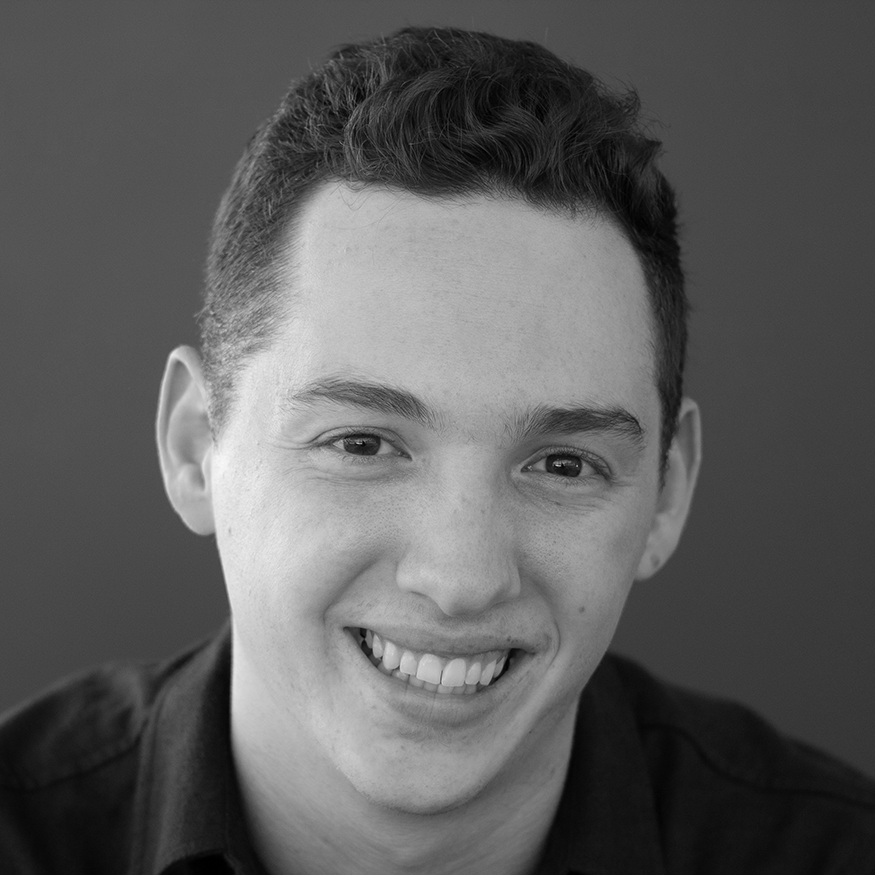
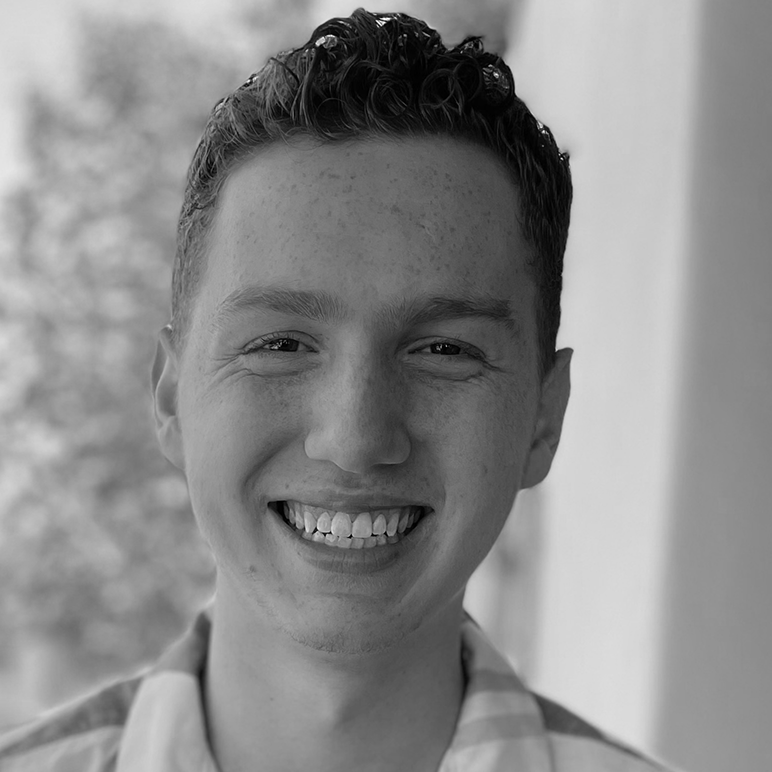
Gideon Temple & Hank Temple
- Title
- "Red Lights"
- Finalist
- When did you first discover theater/what was your first experience?
GIDEON: My first theater experience was filling in for a community theater production of Annie three days before the show opened. I had one un-mic'd line in the show as FDR's assistant and wheelchair pusher: "Yes, sir!"
HANK: My first theatrical experience was playing a Wickersham Brother in a children’s theater production of "Seussical The Musical." Needless to say, I was hooked.- When/how did you become a writer? Is there a writer, show, or text that particularly inspired you?
GIDEON: I started writing songs with my brother when I was 13. We would spend our weekends doing marathon songwriting sessions that usually ended in half-baked ideas and hurt feelings.
HANK: I started writing when I was ten years old. The first song I wrote was titled “NJB.” It chronicled a nice Jewish boy who wanted to pursue musical theater. Write what you know!- How do you describe your style/work?
GIDEON: In my show, Star Machine, we try to balance satire and heart. With my music, I always strive to blend clear, conversational lyrics with hooky, memorable melodies.
HANK: Regarding the overall work I do, I guess you could call me a person who attempts to be funny. In songwriting, I always try to make character and story-based decisions while maintaining a catchy hook. The keyword is try!- What is most rewarding to you about writing music?
GIDEON: The most rewarding part of writing for me is getting to collaborate with my brother and parents. They’re the best collaborators (and family) I could’ve asked for.
HANK: The most rewarding part of writing is that I get to do it with my collaborator and brother, Gideon! He always pushes me to think beyond what I can imagine. Writing is fun, but it’s also scary. When you’re fighting against a blank page, it’s nice to have someone by your side.
